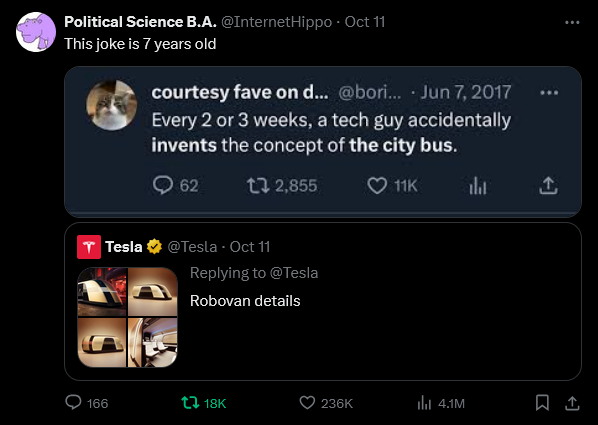this post was submitted on 13 Oct 2024
1171 points (98.8% liked)
Microblog Memes
5863 readers
3021 users here now
A place to share screenshots of Microblog posts, whether from Mastodon, tumblr, ~~Twitter~~ X, KBin, Threads or elsewhere.
Created as an evolution of White People Twitter and other tweet-capture subreddits.
Rules:
- Please put at least one word relevant to the post in the post title.
- Be nice.
- No advertising, brand promotion or guerilla marketing.
- Posters are encouraged to link to the toot or tweet etc in the description of posts.
Related communities:
founded 1 year ago
MODERATORS
you are viewing a single comment's thread
view the rest of the comments
view the rest of the comments

For this discussion, you're really torturing the definition of a bus if you're going to use BRT to mean busses. BRT does not meet most peoples definition of "city bus" as the conversation up to now has suggested.
BRT would nearly always be a zero sum solution to make your statement true. You would have to subtract from current roads that accommodate traffic to create BRT to meet your metric. Land, espeically in dense cities is nearly always already allocated. If anything besides the zero sum BRT, light rail would likely be a better choice than BRT because it can subterranean or elevated with fewer building challenges/dangers.
I'm interested in an example of a city you have a in mind that BRT would be a better choice than city busses or light rail.